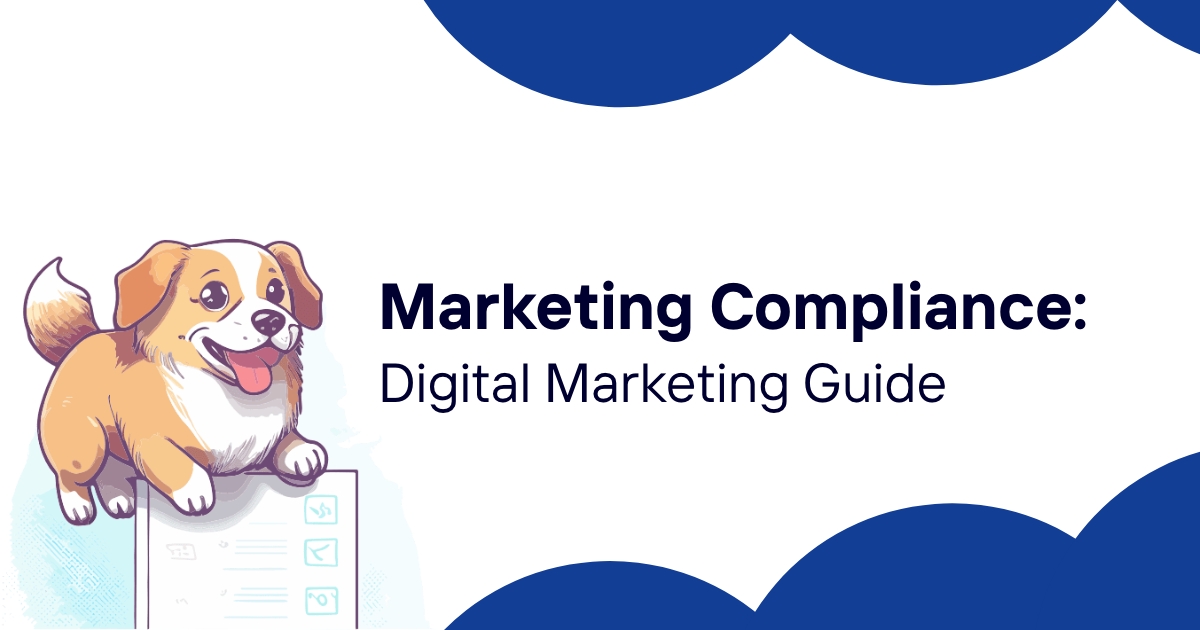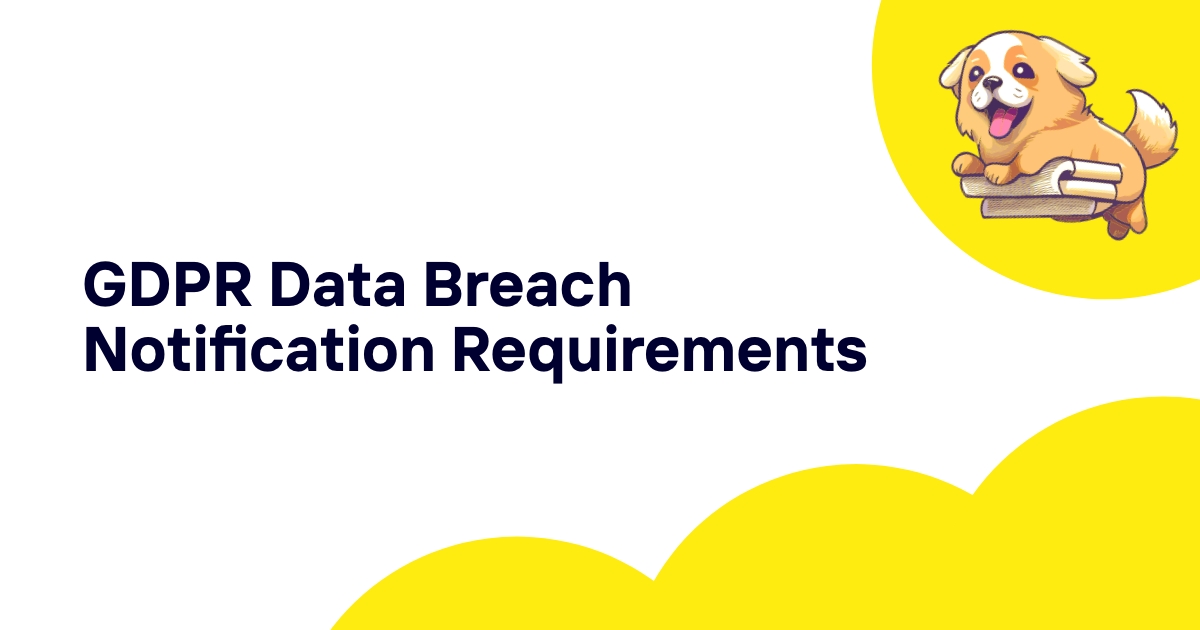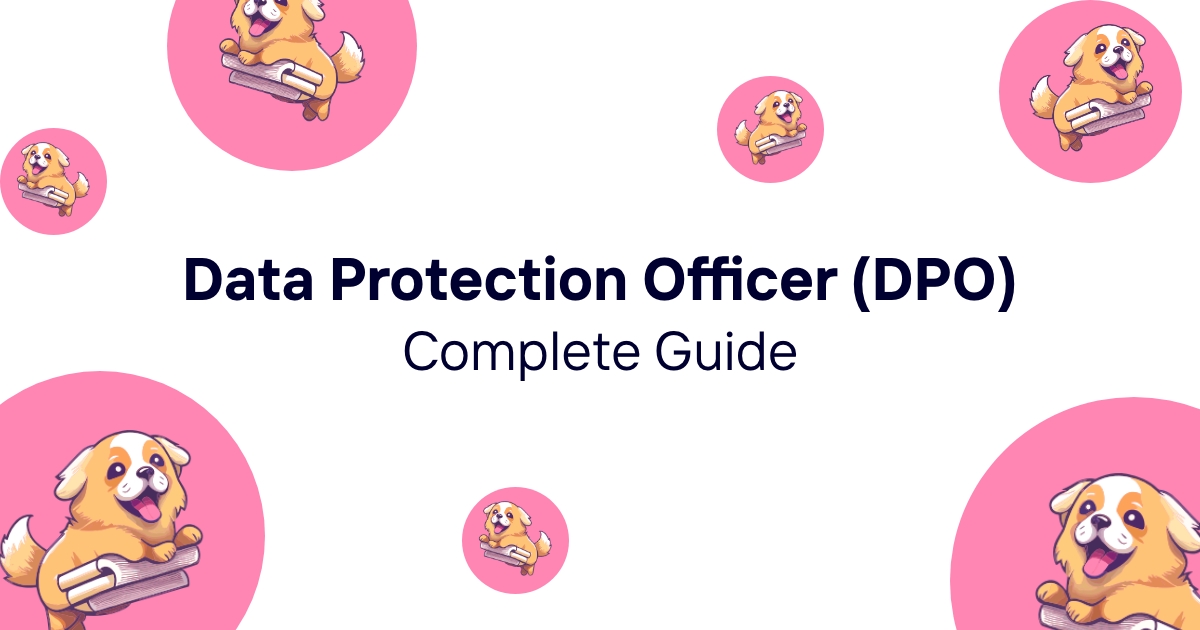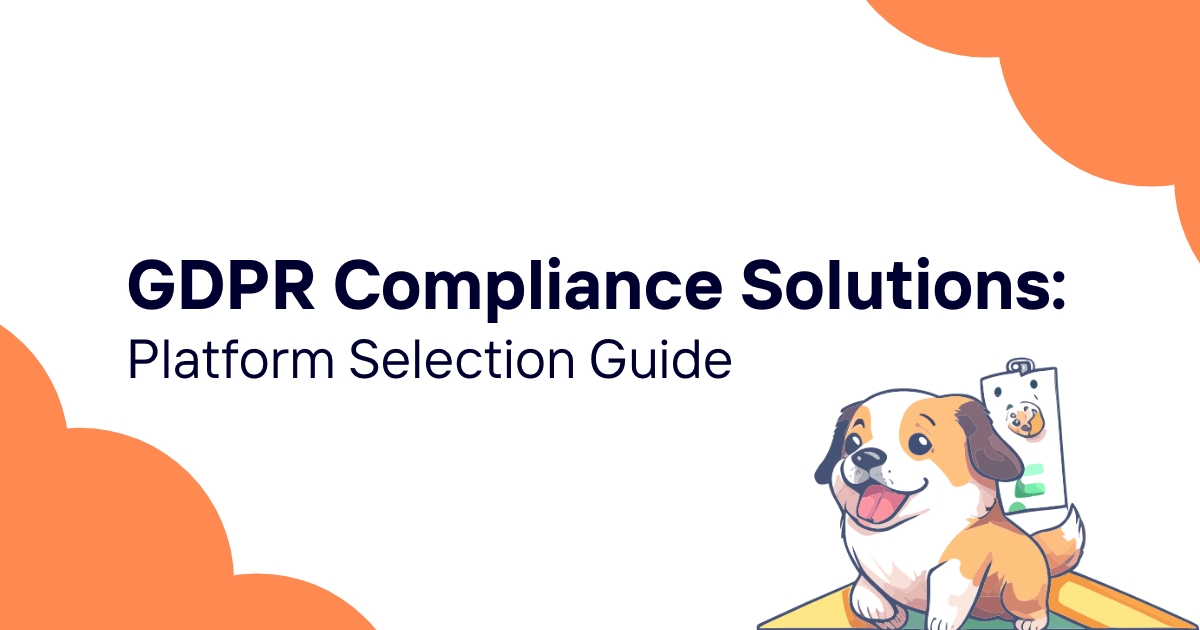Digital marketing transformed overnight when GDPR introduced strict consent requirements that invalidated common practices like pre-checked opt-in boxes and inferred consent from business relationships. Many marketing teams struggle to maintain effectiveness while meeting privacy requirements.
The challenge extends beyond simple consent collection to comprehensive data lifecycle management across multiple marketing channels, platforms, and customer touchpoints. A single consent misstep can trigger regulatory investigations and damage customer relationships.
This guide provides practical strategies for GDPR-compliant digital marketing that builds customer trust while maintaining campaign effectiveness and business growth objectives.
GDPR Impact on Digital Marketing
Fundamental Marketing Changes
Explicit consent requirements eliminated implied consent from business relationships, requiring active opt-in for most marketing communications and data processing.
Data minimization principles restrict collection to information necessary for specific marketing purposes, ending broad data gathering for potential future use.
Purpose limitation requires separate consent for different marketing activities, preventing data collected for one campaign from being used for unrelated marketing purposes.
Individual rights including access, correction, and deletion create ongoing obligations that affect marketing database management and campaign operations.
Legal Basis for Marketing Activities
Consent provides the primary legal basis for direct marketing to consumers, requiring freely given, specific, informed, and unambiguous agreement.
Legitimate interest may support some B2B marketing activities and existing customer communications, but requires careful balancing test documentation.
Contract performance enables marketing related to ongoing customer relationships and service delivery, but doesn't extend to promotional activities.
Legal obligation rarely applies to marketing activities except in specific regulated industries with mandatory customer communication requirements.
Marketing vs Non-Marketing Processing
Clear purpose distinction prevents marketing teams from accessing customer data collected for other business purposes without appropriate consent or legal basis.
Service delivery communications including order confirmations and account updates don't require marketing consent but shouldn't include promotional content.
Customer research and feedback collection may require separate consent when information will be used for marketing rather than service improvement.
Cross-functional data sharing requires careful analysis of legal bases and consent scope to ensure appropriate access and use limitations.
Compliance Risk Assessment
Regulatory enforcement increasingly targets marketing practices with substantial fines for consent violations and inadequate individual rights handling.
Customer trust impact from privacy violations often creates lasting damage to brand reputation and customer relationships.
Competitive disadvantage emerges when competitors implement privacy-first marketing strategies that build stronger customer relationships.
Operational disruption from compliance failures can require emergency campaign suspension and database remediation activities.
Consent Requirements for Marketing
Valid Consent Standards
Freely given consent requires genuine choice without coercion, bundling, or significant consequences for refusal to consent to marketing.
Specific consent demands separate agreement for different marketing purposes rather than blanket permission for undefined promotional activities.
Informed consent requires clear explanation of data use, marketing purposes, and individual rights before consent decisions.
Unambiguous consent eliminates doubt about individual intentions through explicit statements or clear affirmative actions.
Consent Collection Methods
Opt-in forms must provide clear information about marketing purposes and enable specific choices about different communication types and frequencies.
Double opt-in processes verify email addresses and confirm consent intentions while providing additional documentation of valid agreement.
Granular consent options allow individuals to choose specific marketing categories, communication channels, and frequency preferences.
Progressive consent collection gathers additional permissions over time as relationships develop rather than requesting broad upfront consent.
Consent Documentation
Consent records must include individual identity, consent content, collection method, timestamp, and evidence of informed decision-making.
Proof of consent should demonstrate that individuals understood what they were agreeing to and made deliberate choices about marketing participation.
Version control tracks consent changes over time including modifications, withdrawals, and renewal activities with complete audit trails.
Legal basis documentation supports consent validity during potential regulatory investigations or individual disputes.
Consent Management Platforms
Centralized consent systems enable consistent management across multiple marketing channels and customer touchpoints.
Real-time consent enforcement prevents unauthorized marketing to individuals who haven't provided or have withdrawn consent.
Integration capabilities ensure consent preferences are respected across email platforms, advertising systems, and customer relationship management tools.
Consider how consent management integrates with broader compliance strategies including those used by SaaS platforms and small businesses.
Email Marketing GDPR Compliance
Consent Requirements for Email
New subscriber consent must be explicit and documented with clear information about email frequency, content types, and withdrawal procedures.
Existing customer assessment requires reviewing pre-GDPR consent to determine whether it meets current standards or requires renewal.
Re-permission campaigns enable organizations to obtain compliant consent from existing subscribers while providing clear value propositions for continued engagement.
Business-to-business email marketing may rely on legitimate interest for certain professional communications but requires careful assessment and easy opt-out mechanisms.
List Management Practices
Suppression list maintenance ensures withdrawn consent is respected across all email campaigns and automated marketing sequences.
Data hygiene procedures remove invalid email addresses and inactive subscribers to maintain list quality and reduce compliance risks.
Segmentation capabilities enable targeted messaging based on consent scope and individual preferences while respecting data minimization principles.
Import procedures verify consent validity when adding contacts from external sources or integrating with other marketing systems.
Email Content Requirements
Unsubscribe mechanisms must be prominent, easy to use, and process requests immediately without requiring login or additional information.
Sender identification clearly indicates who is sending emails and provides contact information for privacy questions or complaints.
Content alignment ensures email content matches consent scope and doesn't include promotional material outside agreed purposes.
Frequency respect honors individual preferences about communication frequency and doesn't overwhelm subscribers with excessive messaging.
Automated Marketing Compliance
Workflow design incorporates consent checking at each stage to prevent unauthorized emails in automated sequences and nurture campaigns.
Trigger event validation ensures automated emails are sent only when individuals have appropriate consent for specific communication types.
Opt-out handling in automation immediately removes individuals from all relevant sequences when withdrawal requests are received.
Compliance monitoring tracks automated campaign performance and identifies potential consent violations or individual rights issues.
Cookie-Based Marketing Restrictions
Marketing Cookie Consent
Non-essential marketing cookies require explicit consent before placement, including tracking pixels, retargeting cookies, and analytics cookies used for marketing.
Consent banner design must provide clear choices between accepting and rejecting marketing cookies without using dark patterns or manipulation.
Granular cookie categories allow individuals to accept functional cookies while rejecting marketing and advertising cookies based on personal preferences.
Cookie consent verification ensures marketing campaigns respect individual cookie preferences and don't target individuals who rejected tracking.
Retargeting and Behavioral Advertising
Audience creation from website visitors requires valid consent for marketing cookie placement and behavioral data collection.
Cross-device tracking compliance requires consent for linking individual behavior across different devices and platforms.
Third-party data sharing with advertising platforms requires appropriate consent and contractual protections for personal data.
Attribution tracking that connects marketing campaigns to customer actions must respect consent scope and data minimization principles.
Social Media Marketing
Social media pixels require consent when they collect personal data for marketing purposes beyond basic website functionality.
Lookalike audience creation using customer data requires explicit consent for data sharing with social media platforms.
Custom audience uploads must verify consent for data sharing and ensure compliance with platform terms and privacy requirements.
Social media integration on websites requires consent for data sharing with platforms and clear information about tracking activities.
Marketing Analytics Compliance
Website analytics for marketing optimization may require consent when processing goes beyond basic service improvement to marketing strategy development.
Conversion tracking that identifies individual customers requires consent for behavioral monitoring and customer journey analysis.
A/B testing with personal data requires consent when experiments involve marketing content or behavioral targeting.
Performance reporting must respect individual privacy by using aggregated data rather than identifying specific customer behaviors.
Lead Generation Compliance
Lead Capture Compliance
Landing page forms must provide clear information about data use and enable specific consent for different marketing purposes.
Lead magnet compliance requires ensuring valuable content exchange doesn't constitute unfair consent bundling or coercion.
Progressive profiling should collect additional information only with appropriate consent and clear explanation of enhanced value provision.
Form design must make consent optional for service access while enabling separate agreement for marketing communications.
Lead Qualification Processes
Sales team access to personal data requires appropriate legal basis and clear boundaries about how lead information can be used.
Lead scoring algorithms that process personal data require consent when they create individual profiles for marketing purposes.
Database enrichment through third-party services requires consent for data sharing and enhancement activities.
CRM integration must respect consent scope and prevent unauthorized access to personal data by sales and marketing teams.
Third-Party Lead Sources
Purchased lead verification requires confirming consent validity and ensuring compliance with data transfer requirements.
Event lead collection must include appropriate consent mechanisms and clear information about follow-up marketing intentions.
Partner lead sharing requires contractual protections and consent verification to ensure compliant data transfers.
Webinar and content syndication leads need consent validation and appropriate legal basis documentation for marketing follow-up.
Lead Nurturing Compliance
Automated nurturing sequences require consent verification at each stage and respect for individual communication preferences.
Content personalization using personal data requires consent for behavioral analysis and individual profiling activities.
Lead handoff procedures ensure sales teams understand consent scope and respect individual preferences during follow-up activities.
Conversion tracking from lead to customer must respect consent limitations and data minimization principles throughout the sales process.
Marketing Analytics and Privacy
Data Collection Limitations
Marketing analytics should collect only data necessary for specific measurement objectives rather than comprehensive behavioral monitoring.
Individual identification in analytics requires consent when analysis goes beyond aggregate reporting to individual customer insights.
Cross-platform tracking for attribution requires consent for data linking and behavioral monitoring across multiple touchpoints.
Data retention in analytics systems must align with consent scope and business necessity rather than indefinite storage for potential future use.
Anonymization and Aggregation
Proper anonymization techniques enable marketing insights while protecting individual privacy through irreversible data transformation.
Aggregated reporting provides campaign effectiveness measurement without exposing individual customer behaviors or preferences.
Statistical analysis can support marketing optimization while maintaining privacy through appropriate data handling and presentation.
Trend analysis enables strategic marketing decisions based on aggregate patterns rather than individual customer tracking.
Third-Party Analytics Integration
Analytics platform selection should consider privacy features and compliance capabilities rather than just functionality and pricing.
Data processing agreements with analytics providers must address consent requirements and individual rights support.
Cross-border data transfers to analytics platforms require appropriate safeguards and consent for international data sharing.
Vendor management ensures analytics providers maintain compliance standards and support customer privacy rights.
Performance Measurement
Attribution modeling should balance marketing insights with privacy protection through appropriate data handling and consent respect.
ROI calculation can often rely on aggregated data rather than individual customer tracking for effective marketing investment analysis.
Campaign optimization using personal data requires consent for behavioral analysis and individual targeting activities.
Competitive analysis should use publicly available information rather than personal data collected through tracking or monitoring.
Cross-Channel Consent Management
Unified Consent Framework
Consent coordination across email, social media, advertising, and other channels ensures consistent privacy protection and customer experience.
Preference center design enables customers to manage all marketing consent in one location rather than separate opt-outs for each channel.
Real-time synchronization ensures consent changes are immediately reflected across all marketing systems and platforms.
Channel-specific options allow granular control over different communication types while maintaining overall consent management efficiency.
Customer Journey Compliance
Touchpoint analysis ensures each customer interaction respects consent scope and doesn't exceed authorized data use.
Cross-channel attribution requires consent for behavioral tracking and customer journey analysis across multiple platforms.
Omnichannel personalization using personal data requires comprehensive consent for data sharing and behavioral analysis.
Customer experience optimization should enhance privacy protection rather than creating additional tracking or monitoring requirements.
Integration Challenges
System integration must maintain consent integrity without creating gaps or inconsistencies in privacy protection.
Data synchronization ensures consent changes are propagated quickly across all connected marketing systems.
Legacy system compliance may require upgrading or replacing older marketing tools that don't support appropriate consent management.
Vendor coordination ensures all marketing service providers understand and respect customer consent preferences.
Compliance Monitoring
Regular audits verify consent management effectiveness across all marketing channels and identify areas needing improvement.
Customer feedback monitoring identifies privacy concerns or consent management issues requiring attention.
Campaign analysis includes privacy compliance verification to ensure marketing activities respect individual rights and preferences.
Performance metrics should include consent rates and opt-out frequencies to evaluate privacy program effectiveness.
Privacy-First Marketing Strategies
Value-Based Consent
Transparent value propositions help customers understand benefits they receive in exchange for marketing consent and data sharing.
Premium content and exclusive offers can justify data collection while providing clear value that supports willing consent provision.
Personalization benefits should be clearly communicated to help customers understand how their data improves their experience.
Educational content about privacy protection builds trust and demonstrates commitment to responsible data handling.
Trust Building Approaches
Privacy-first messaging demonstrates respect for customer rights and can differentiate brands in privacy-conscious markets.
Transparent data practices including clear privacy policies and easy consent management build customer confidence.
Proactive privacy communication about new features or changes shows respect for customer autonomy and choice.
Customer control emphasis helps individuals feel empowered rather than monitored through marketing activities.
Alternative Marketing Methods
Context-based advertising targets content rather than individuals, reducing privacy concerns while maintaining effectiveness.
First-party data strategies focus on direct customer relationships rather than third-party tracking and behavioral monitoring.
Community building and content marketing provide value without extensive personal data collection or behavioral tracking.
Brand storytelling and thought leadership can drive engagement without requiring extensive customer profiling or targeting.
Competitive Advantages
Privacy leadership often attracts customers who value data protection and creates differentiation from less privacy-conscious competitors.
Trust building through privacy compliance can support premium pricing and stronger customer loyalty.
Regulatory compliance reduces business risks and ensures marketing activities can continue without disruption.
Innovation in privacy-preserving marketing often leads to more creative and effective strategies that benefit both customers and businesses.
GDPR marketing compliance requires fundamental changes to digital marketing strategies but creates opportunities for stronger customer relationships built on trust and transparency. Organizations that embrace privacy-first marketing typically experience better long-term customer engagement and competitive positioning.
Effective marketing compliance balances regulatory requirements with business objectives while building customer trust through transparent and respectful data practices.
Ready to implement GDPR-compliant marketing strategies? Use ComplyDog and access marketing compliance tools, consent management systems, and privacy-first marketing guidance that support effective customer engagement while respecting individual privacy rights.


















